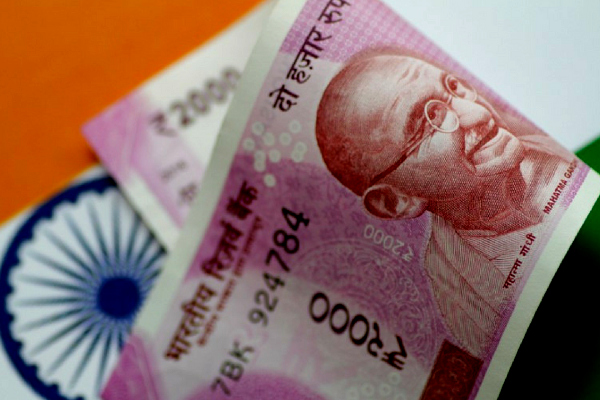High in the Himalayas, Sikkim is one of the tiniest states in India. But it is about to embark on an experiment of global interest.
Sikkim’s ruling party has announced an ambitious plan to implement a universal basic income for every one of its 610,577 citizens.
If successful, the scheme would represent the largest trial run anywhere in the world of a concept that supporters such as Facebook’s Mark Zuckerberg say could provide a safety net, help alleviate poverty and address the challenge of job automation.
Detractors, meanwhile, say it would reduce the incentive to work and would come at a huge expense.
A universal basic income is a regular, guaranteed income paid by the government, universally and unconditionally, to all citizens. It is a cash payment that aims to replace the often confusing array of assistance that states offer to citizens and place spending decisions in the hands of recipients.
“If there is one chance of it happening anywhere, it is Sikkim,” said P.D. Rai, the sole member of India’s Parliament from the state.
Sikkim already has a progressive track record: In 1998, it was one of the first Indian states to ban plastic bags – a ban that it has implemented successfully, unlike many other states.
It also provided housing for all its citizens. Most recently, it became the country’s first organic state, eliminating the use of pesticides and fertilizers.
Its social indexes also stand out from the rest of the country, with a literacy rate of 98 percent, and it has reduced the percentage of people living below the poverty line to about 8 percent – compared with nearly 30 percent nationally. Sikkim’s small geographic area and low population density have been responsible, in part, for its success.
Rai acknowledged that there will be challenges. “It’s a matter of political will ultimately,” he said.
“With the rise of global inequality, we want to ensure that we bridge the gap.” Rai declined to reveal how much the program, which was announced ahead of upcoming elections this spring, would potentially cost the state.
The tourism and power sectors will be tapped to raise the resources. Tourism is a major source of revenue, with more than 2.5 million visitors annually.
As a surplus power generating state, Sikkim sells 90 percent of its hydropower. For now, he said, the government is holding meetings with experts and stakeholders and expects to roll out the scheme by 2022.
India has a large existing social security apparatus: The central government alone spends 5 percent of GDP on 950 programs. These range from free rice, an allowance to build houses and even guaranteed employment for some residents of rural areas.
But inefficient implementation and diversion of funds because of corruption have long plagued the system, leading many to propose a universal basic income as a possible solution.
India’s Economic Survey for 2017 highlighted the concept as a “powerful idea” that should be debated.
Elsewhere in the world, there have been several small-scale experiments with implementing a universal basic income, but they have met with limited success.
In April 2017, the government of Ontario in Canada announced a pilot project involving 4,000 people that would have cost 150 million Canadian dollars (US$113 million).
The project ended abruptly after a year when the local government changed and the new administration described the program as expensive and unsustainable.
In Finland, an experiment with universal basic income ended in December after completing its two-year trial run, and there are currently no plans to continue the program. The trial included a US$630 monthly payment to 2,000 unemployed citizens.
In the United States, meanwhile, the concept has been floated in Stockton, California, by its young mayor. Last year, it announced that 100 residents would receive US$500 a month for 18 months.
The notion of a universal basic income has found backers in Silicon Valley, with tech moguls such as Zuckerberg and Elon Musk endorsing it.
In his Harvard commencement address in 2017, Zuckerberg spoke of the need for a “new social contract,” with ideas like a basic income to provide a “cushion” for everyone. Musk has described it as a “necessary” step as automation takes over human jobs.
But economists have pointed to various possible pitfalls. Some question whether giving cash instead of something like a food subsidy would lead to spending on wasteful items.
Plus as prices rise, a cash handout would buy fewer goods. Others say a basic income would disincentivize work, raising the possibility of a shrinking labor force.
Hailing Sikkim’s initiative, Pranab Bardhan, an economist at the University of California at Berkeley, said the rationale behind a universal basic income in a place such as Sikkim is very different from a place like Stockton.
“In developed countries, the main purpose is to restructure or economize the existing welfare schemes, like unemployment benefits,” Bardhan said.
“In low- or mid-income countries, like India, the rationale will be to address the minimum economic insecurity of a larger section of the population, not just the poorest, without touching the existing anti-poverty measures.”
Source: Science Alert
Image Courtesy:IPANewspack
You may also like
-
Trade Connect E-platform For Exports Is Single Window, Fast, Accessible And Transformational: Shri Piyush Goyal
-
Dot Simplifies Approval Processes For Telecom Licenses And Wireless Equipment
-
Coal Production and Supply Trends on Positive Trajectory
-
Union Minister To Release Booklets On Promotion Of Indigenous Species & Conservation Of States Fishes
-
2nd India-Japan Finance Dialogue held in Tokyo on 6th September, 2024
